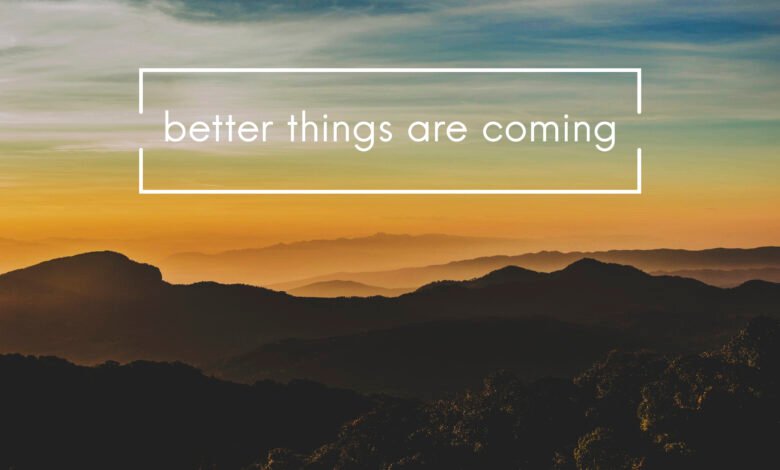The Enduring Resonance: Why Quotes Captivate and Guide Us at Quotela.net

In a world saturated with information, distilled wisdom holds unparalleled power. At Quotela.net, we believe that a single, well-crafted quote can act as a compass, a spark, or a comforting companion on life’s journey. Quotes transcend time and culture, encapsulating complex truths in bite-sized brilliance. Whether drawn from philosophers, artists, scientists, or everyday sages, these potent phrases resonate because they mirror our deepest emotions and aspirations. This article explores the multifaceted magic of quotes—how they shape minds, fuel progress, and connect humanity across generations. Join us as we delve into why these succinct expressions remain indispensable tools for inspiration, reflection, and transformation.
1. The Psychological Alchemy of Quotes
Quotes wield profound psychological influence by tapping into universal human experiences. Neuroscientists suggest that succinct, evocative language activates multiple brain regions, linking emotion with cognition. When we encounter a quote that articulates our unspoken feelings—like Rumi’s “The wound is the place where the light enters you” or Mandela’s “It always seems impossible until it’s done”—it validates our struggles and kindles hope. This validation reduces cognitive dissonance, making daunting challenges feel navigable. Moreover, quotes act as mental anchors; in moments of doubt, recalling Einstein’s “Imagination is more important than knowledge” can shift perspectives from limitation to possibility. Their brevity ensures easy recall, embedding wisdom into our subconscious and subtly guiding decisions, fostering resilience and emotional agility in daily life.
2. Quotes as Catalysts for Cultural and Social Change
Throughout history, quotes have ignited revolutions and reshaped societies. Consider how Thomas Paine’s “These are the times that try men’s souls” mobilized a fledgling America or how Malala Yousafzai’s “One child, one teacher, one book can change the world” galvanized global education advocacy. These phrases distill complex ideologies into accessible rallying cries, democratizing influence beyond academic or political elites. In the digital age, platforms like Quotela.net amplify this power, allowing quotes to virally challenge injustices or unify communities across borders. A single line from Audre Lorde (“Your silence will not protect you”) can fuel movements by crystallizing shared grievances into actionable resolve. Quotes thus serve as cultural shorthand, preserving collective memory and inspiring incremental progress by framing societal evolution in human-centric narratives.
3. Integrating Quotes into Personal and Professional Growth
Strategically leveraging quotes transforms passive admiration into active self-improvement. In personal development, curating quotes aligned with your goals—taped to mirrors or saved as phone wallpapers—creates a constant feedback loop. For instance, embracing Maya Angelou’s “Do the best you can until you know better. Then when you know better, do better” encourages compassionate self-assessment. Professionally, quotes enhance leadership and communication. A manager quoting Simon Sinek’s “Leaders eat last” fosters team trust, while Steve Jobs’ “Stay hungry, stay foolish” reinforces innovation mindsets in workplaces. Educators use quotes to stimulate critical thinking; posing Aristotle’s “It is the mark of an educated mind to entertain a thought without accepting it” teaches intellectual humility. At Quotela.net, we advocate intentional curation: collect quotes that challenge complacency, reframe failures as lessons, and align actions with core values.
4. The Art of Crafting and Curating Timeless Quotes
Behind every enduring quote lies linguistic precision and emotional authenticity. Great quotes balance universality with specificity—they feel personal yet applicable to millions. Take Marie Curie’s “Be less curious about people and more curious about ideas”: its power stems from antithesis and a call to intellectual integrity. Modern curators (like Quotela.net) must also navigate context, ensuring quotes aren’t misappropriated or stripped of historical nuance. For example, misquoting Gandhi dilutes his message of nonviolent resistance. Ethical curation involves verifying sources, honoring cultural origins, and avoiding reductionism. In an era of misinformation, platforms bear responsibility to present quotes not as platitudes but as invitations to deeper exploration—linking users to full speeches, biographies, or related resources to foster informed engagement rather than superficial consumption.
Conclusion
Quotes are far more than decorative words; they are vessels of human experience that educate, provoke, and heal. At Quotela.net, we celebrate their unique ability to bridge eras and ideologies, offering clarity amid chaos. By understanding their psychological impact, societal role, and practical applications, we harness quotes not as crutches but as catalysts—transforming fleeting inspiration into lasting action. As you navigate life’s complexities, let these distilled wisdoms remind you that you are part of an ongoing conversation spanning centuries. Explore, reflect, and allow the voices of the past and present to illuminate your path forward.
FAQ
Q1: How can I use quotes effectively without sounding cliché?
A1: Context is key. Pair quotes with personal anecdotes or specific examples to illustrate their relevance. Instead of standalone repetition, analyze the quote’s meaning in relation to your topic—e.g., “Viktor Frankl’s insight on finding purpose in suffering resonates here because…” This demonstrates depth and avoids triteness.
Q2: Are quotes protected by copyright?
A2: Generally, short quotes fall under “fair use” for commentary or education. However, extensive quoting (e.g., full paragraphs) or commercial misuse may require permission. Always attribute sources accurately—ethics matter as much as legality.
Q3: Can quotes really impact mental well-being?
A3: Absolutely. Studies in bibliotherapy show that targeted quotes reduce anxiety by normalizing emotions. Creating a “quote journal” for reflection can build emotional resilience, acting as cognitive-behavioral tools to reframe negative thinking patterns.
Q4: Why do misattributed quotes persist online?
A4: Misattributions often spread due to viral sharing without verification. Platforms like Quotela.net prioritize source accuracy, but users should cross-check via reputable archives (e.g., Oxford Reference) before sharing quotes publicly.
Q5: How does Quotela.net select its quotes?
A5: Our curation balances cultural significance, linguistic impact, and diversity of voices. We prioritize authenticity—emphasizing verified sources, contextual integrity, and quotes that challenge, comfort, or catalyze growth across life’s domains.



